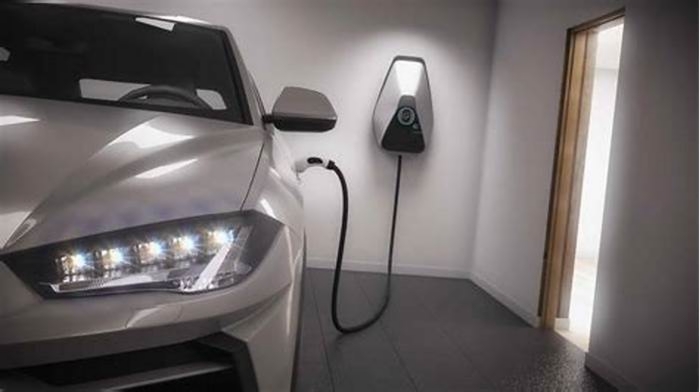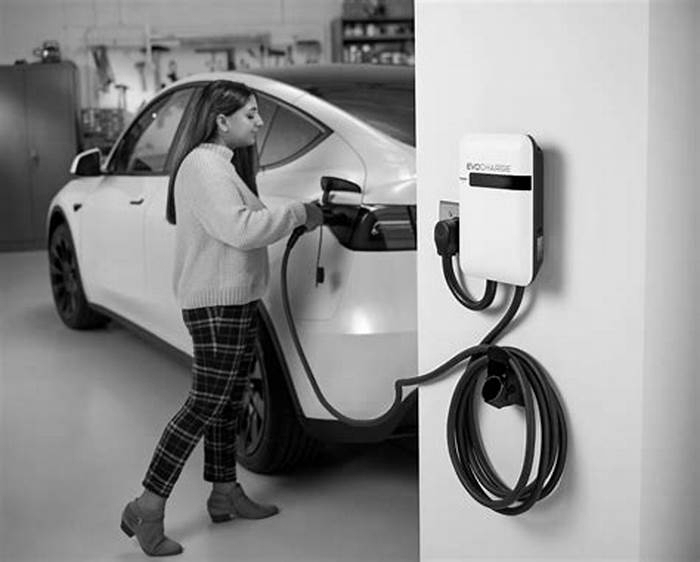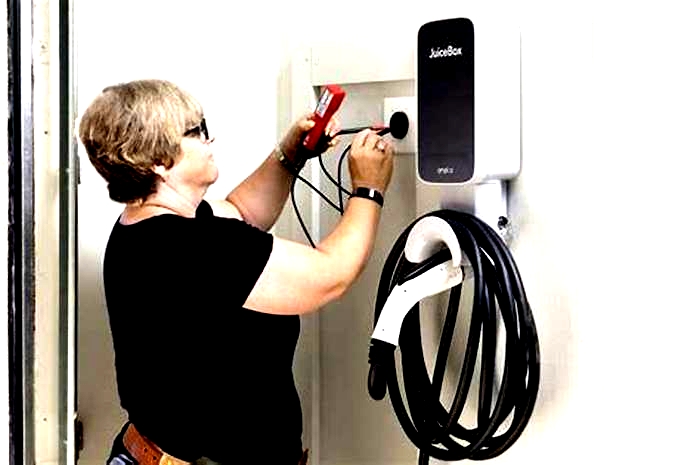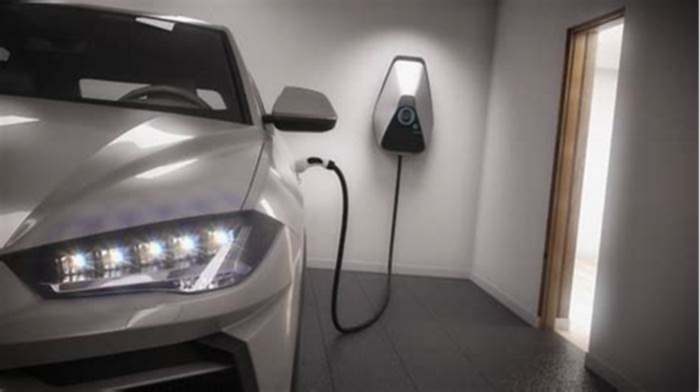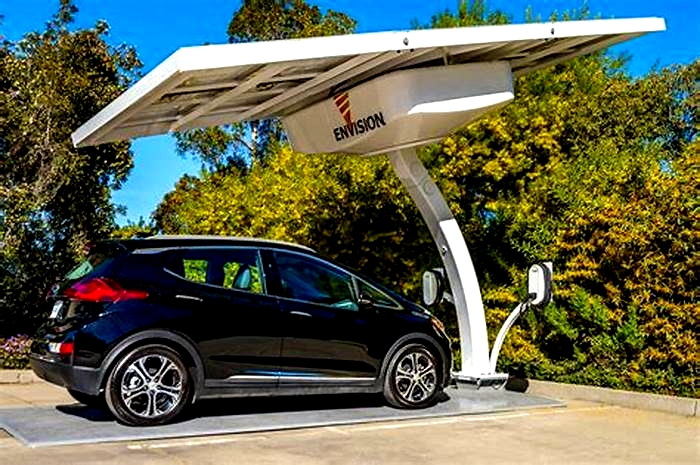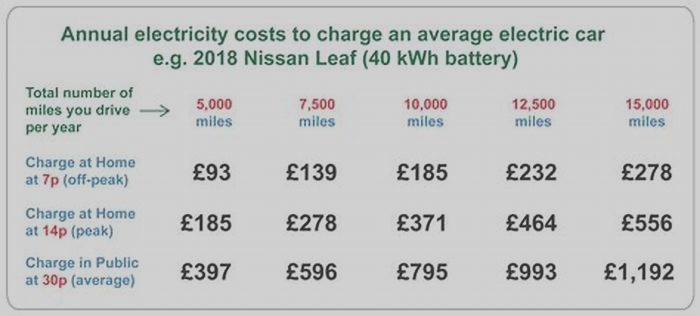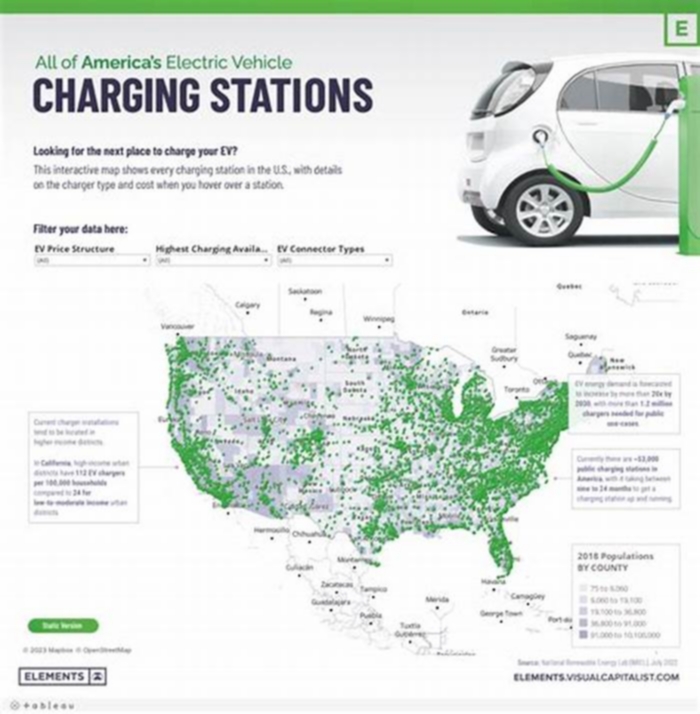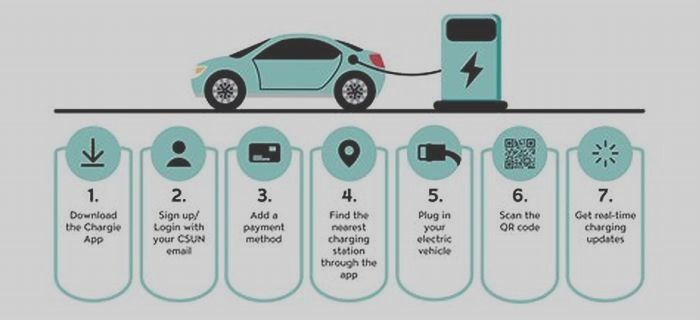Does charging an electric car at home raise your electric bill
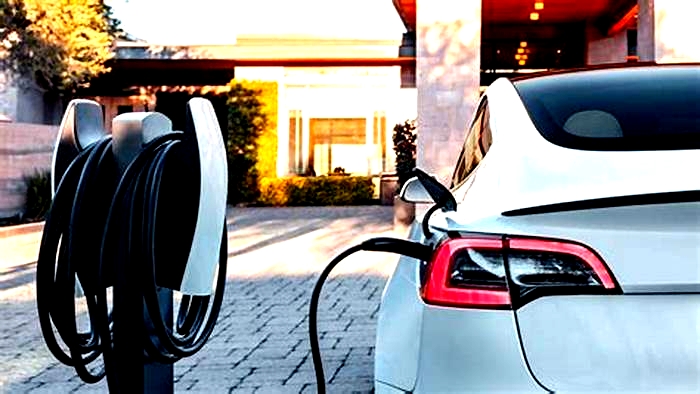
How Much Does Your Electric Bill Go Up With A Tesla?
As of February 2023, the average residential electricity rate in the U.S. is about 23 cents per kilowatt-hour (kWh).
Switching to an EV means charging your car at home, naturally increasing household electricity usage. Understanding this cost is crucial for financial planning and compares favorably to the ongoing costs of gasoline.
A Teslas battery capacity and your driving habits are key factors that dictate the increase in your electricity expenses.
The cost of charging an electric car can be estimated by examining the size of its battery and the cost per kilowatt-hour (kWh) of electricity in your area.
For instance, the Tesla Model Xs 100 kWh battery will cost a certain amount to charge from empty to full based on local electricity rates.
Your electric bill increase is not just about the cost to charge but also about the efficiency of the vehicle. Teslas are known for their energy efficiency, meaning more miles per kWh than other electric cars.
This translates to a lower overall cost per mile, affecting how much your electric bill will rise due to your new Tesla.
Comparing Tesla Models by Cost to Own
When assessing the monthly cost of ownership consider both the initial price and the long-term charging costs.
The Tesla Model 3, being the most affordable option, starts with a lower price tag compared to the more premium Tesla Model S and the spacious Tesla Model X. Heres a quick look at their battery capacities and potential charging expenses:
- Tesla Model 3: Approx. 50-82 kWh battery capacity, average cost to charge $11-$18
- Tesla Model S: Approx. 100 kWh battery capacity, average cost to charge $23
- Tesla Model X: Approx. 100 kWh battery capacity, ideal for those needing an SUV, similar charging costs to Model S
- Tesla Model Y: Falls between Model 3 & X, combines efficiency and space, cost to own similar to Model 3 due to shared components
So if you charge a Model S from empty to full 20 times a month, you are looking at $460 being added to your electricity bill. But in real life, this figure would be lower because of the 20%-80% rule.
Your actual costs will vary based on local electricity rates and how often you charge.
Calculating Electricity Usage for Tesla
When considering the cost to charge a Tesla, youll need to understand the energy usage based on battery capacity and local electricity rates. This will help you estimate the increase in your electricity bill.
Cost Per Charge Calculation
To calculate the cost per charge for your Tesla, you must consider two main factors: your Teslas battery capacity (measured in kilowatt-hours or kWh) and your electricity rate (cost per kWh consumed).
For instance, a Tesla X with a 100kWh battery will cost different amounts based on the per kWh rate set by your electric company. If your electricity rate is $0.23 per kWh, a full charge would cost you [100kWh x $0.23/kWh] = $23.00.
Factors Affecting Charging Costs
Several factors affect charging costs including:
- The efficiency of your Tesla model
- The type of charger you use, such as a High Power Wall Connector (HPWC) which might use amps ranging from 40 to 80 amps
- Weather conditions which can impact your Teslas charging efficiency
- Electricity usage during peak hours can be more expensive, depending on your electric companys pricing scheme
- The frequency of charges, which depends on your typical mileage
Using energy during off-peak hours could result in savings on your electricity bill.
Comparing Tesla Charging to Gasoline Cost
If youre driving a gas car with an average of 25 mpg and gas costs $3.50 per gallon, a 100-mile trip would cost you $14.00.
Meanwhile, the same trip in a Tesla could cost less than $5, depending on your local electricity rates and your cars efficiency.
Impact on the Electric Bill
Upgrading to a Tesla can significantly change your electricity consumption patterns. Understanding how it affects your electric bill is essential for effective budget planning.
Average Increase in Electric Bill
Your electric bill will undoubtedly go up when you start charging a Tesla at home. The exact increase depends on the model of your Tesla, how often you drive, and your local electricity rate.
Charging a Tesla Model X with a 100kWh battery at the national residential average may cost about $23 per full charge. If you charge your Tesla frequently, your monthly electric bill may see a noticeable increase.
Long-Term Cost Efficiency
Despite the initial increase in electricity costs, a Tesla offers long-term savings when compared to vehicles with an internal combustion engine.
Electric vehicles have fewer moving parts, leading to lower maintenance costs, and the cost of electricity is often less volatile than gas prices.
Additionally, the efficiency of electric motors in converting energy into motion is typically higher than that of gasoline engines, which can translate to more miles for your dollar over time.
Budgeting for a Tesla
To effectively budget for a Tesla in your life, you should:
- Calculate the expected increase in your electric bill based on your usual mileage and local electricity rates.
- Factor in regional variations; some areas have higher rates during peak hours.
- Consider residential electricity plans that offer lower rates for electric vehicle charging during off-peak hours to maximize savings.
- Remember to include potential tax incentives and rebates for electric vehicle owners, which can offset the increased cost of electricity.
Regional Variations in Electric Bill Impact
Your state of residence is crucial in determining how much your electric bill will increase when you own a Tesla.
Electricity rates can differ drastically from one state to another, impacting the cost of charging.
Remember that the average cost of electricity nationally is around 23 cents per kWh.
Yet this rate might be lower in some states and significantly higher in others, altering the financial impact of ownership.
In Arizona, Tesla drivers experience off-peak rates for electricity that can range between 7.38-7.59 cents per kWh, this being one of the factors making electric bill variations quite noticeable when compared across different regions.
Impact of Weather on Charging
Extreme cold temperatures can lead to your Tesla requiring more energy to maintain battery performance, resulting in a higher electricity bill.
Places with mild weather are more likely to see consistent charging costs, whereas states with harsher seasons may observe fluctuations in their electricity bill due to the additional energy required for climate control and battery management during charging.
Practical Tips for New and Prospective Tesla Owners
You can minimize the impact on your costs by strategically managing when and how you charge your Tesla.
Utilizing Off-Peak Hours
Off-peak hours are when electricity demand is low; consequently, the electricity rate may be cheaper.
Check with your local utility company for off-peak times and charge during these hours.
Not only will charging during off-peak hours lessen the strain on the electrical grid, but it can also save you a significant amount of money on your electric bill if your utility offers time-based rates.
Investment in Home Charging Infrastructure
Investing in a Level 2 home charging station can be cost-efficient in the long term.
Level 2 chargers are faster and more efficient than standard charging options. Though theres an upfront investment for the charging infrastructure and installation, the convenience and lower charging costs over time can offset the initial expense.
Moreover, some regions offer incentives or rebates for installing charging equipment.
Leveraging Renewable Energy
Pairing your Tesla with renewable energy sources like solar panels can substantially reduce your charging costs.
By generating your own electricity, your reliance on the grid decreases, and this can lead to lower home electric bills.
Remember that while the initial cost of solar installation is considerable, the long-term savings and potential increase in property value are worth considering.
Navigating Tax Incentives and Rebates
Federal, state, and local governments often provide financial incentives for purchasing electric cars:
- Federal Tax Credit: Up to $7,500 credit for new EV purchases, though it phases out after a manufacturer hits 200,000 units sold.
- State Rebates: These can range widely based on your location, with additional incentives for installing solar panels or home charging stations.
In addition to government savings, Tesla occasionally offers their own promotions, like complimentary Supercharging miles. Ensure to stay updated on Teslas website or your local EV programs for the latest information.
As a new or prospective Tesla owner, understanding the cost details associated with various models and the potential financial benefits from tax incentives ensures a more informed decision-making process.
Electric Car Charging at Home: Your Frequently Asked Questions, Answered
Charging an electric car at home is convenient. Installing an electric vehicle charging point may do more than just make your life easier. Well answer some of the most common questions people have about this increasingly popular consumer trend.
What You Need to Know About Charging at Home
If you plug your car into a regular socket with an extension cord, it could take days to charge. A dedicated electric vehicle charging point is necessary to make the process practical. Here are some technical details to consider:
Can I charge my electric car at home?
You can charge your car at home, which may be a more convenient option than charging at commercial stations.
What do I need to charge an electric car at home?
Charging your electric car at home using your regular home energy supply is not ideal. It could take more than 60 hours to charge. You may want to consider upgrading to a Level 2 unit with a 240-volt supply. For real speed, a direct current (DC) fast charger station, with a 480-volt DC power supply, charges your electric vehicle in just half an hour.
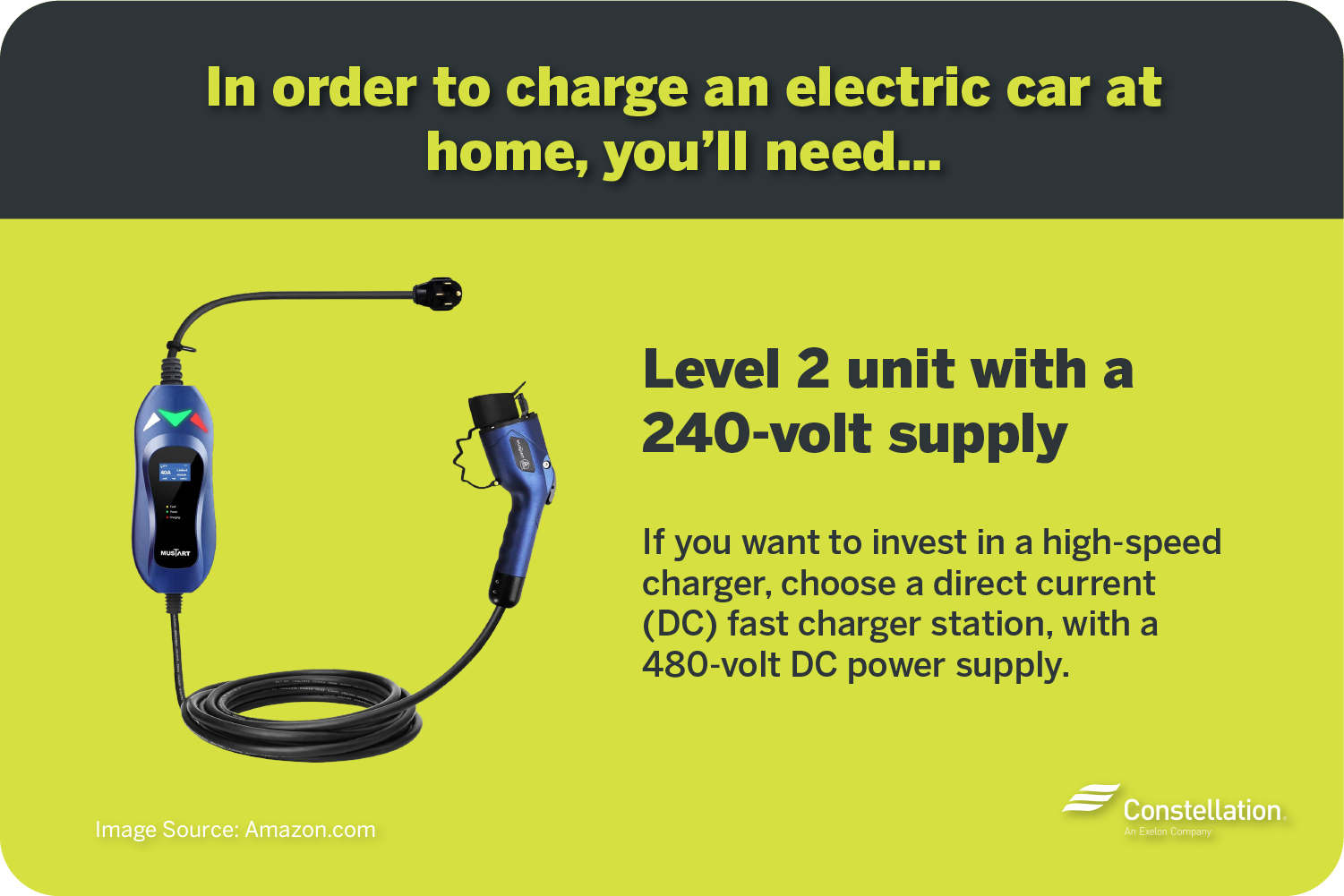

Where should I install my home charging station?
Most people install equipment in a garage for security and weather protection. If you install outdoors, use a unit rated for it. Alternatively, install inside near a door or window, connecting to your car with an extra-long charging cable.
How long does it take to charge an electric car at home?
Wondering how long it takes to charge an electric car? Theres no definitive answer. Its hard to predict because battery sizes, configurations and conditions vary. The charger type and power source make a massive difference from days to just minutes.
Choosing a Home Charging Station
Choosing among options for electric car charging at home is a matter of trade-offs and limitations. Weigh the cost against the value you add, similar to other changes you may consider when making your house more sustainable.
Which home EV charger should I get?
When deciding how to charge an electric car at home, consider charging speed, budget, your homes electricity supply and the limitations of your local power grid. For a fast charge, youll spend more on equipment and installation. You might need to upgrade to a 240-volt supply.
Many homes cant accommodate a DC fast charger because residential neighborhood grids werent built to handle 480-volt direct current. These systems can easily cost $50,000, putting them out of the reach of the average consumer.
Level 1 vs. Level 2 charging stations
The simplest, least-expensive charging station is Level 1. Simply plug the cable that comes with your car into any 110120V AC socket with a three-prong grounded plug. Charging can be exceptionally slow about an hour for every 4 miles of range taking days to fully charge.
Opting for a Level 2 EV charging station may require stepping up your electrical supply to 240V and installing a special socket like electric clothes dryers use. Then you can install either a fixed or a portable EV charging unit. Consider the ENERGY STAR rating of whatever unit you choose. You can charge in 12 hours or less with a Level 2 EV charging station.
Home Charging Costs
Home charging costs will vary. They are especially dependent on the electricity cost in your area and vehicle efficiency.
How much does it cost to charge an electric car at home?
To understand the cost of electric car charging at home, check your vehicle efficiency, measured in kilowatt-hours per 100 miles driven. Electricity is also priced in kilowatt-hours, making the math easier. Take the number of kilowatt-hours your car uses to travel 100 miles and multiply that by what you pay for a kilowatt-hour in your home. Divide that number by 100 and youve got your cost per mile.
For example, a car thats rated at 33 kilowatt-hours per 100 miles, charged with electricity costing $0.13 per kilowatt hour, will run you 4 cents a mile. The U.S. Department of Energy has a Vehicle Cost Calculator to help you compare vehicles.
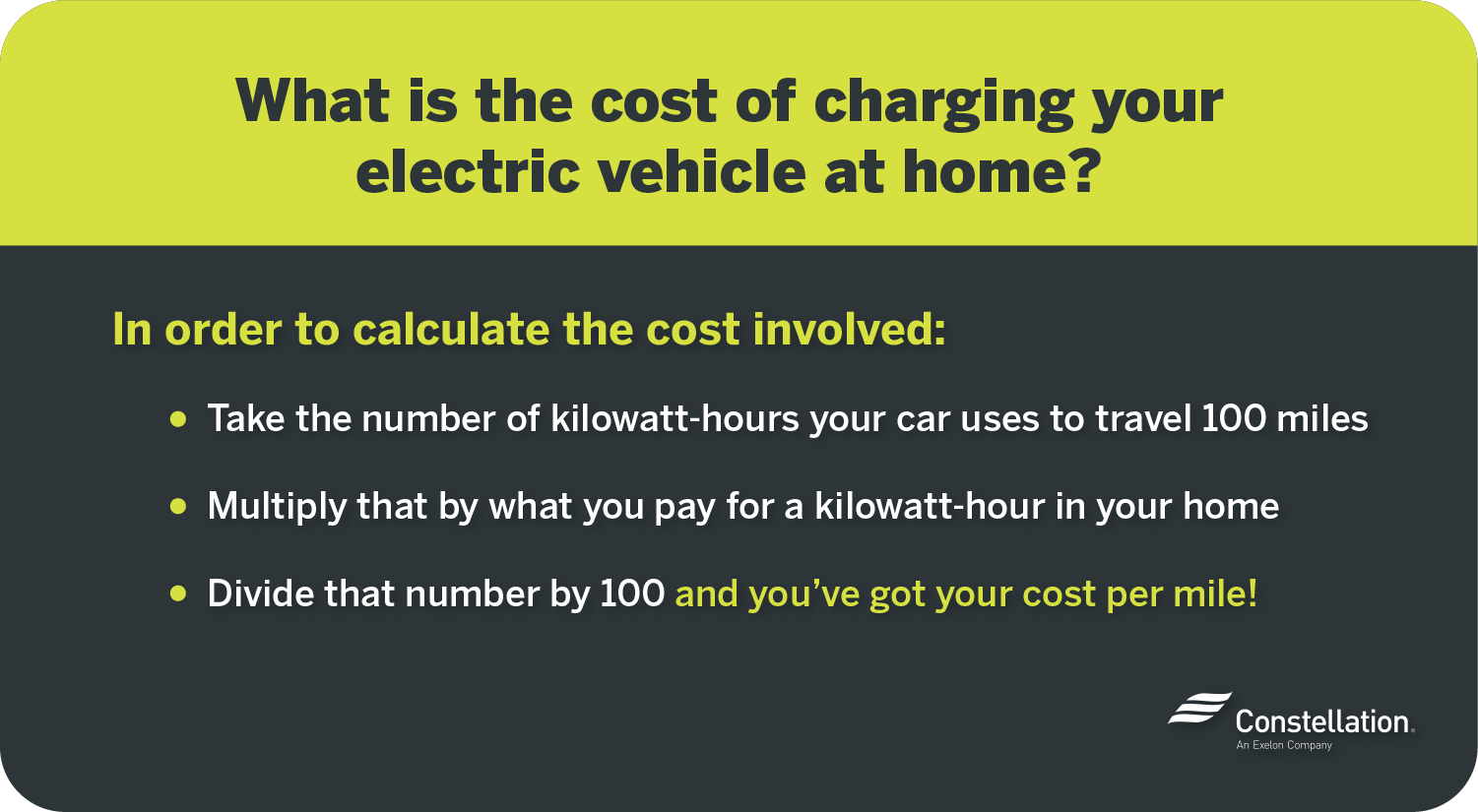

Whats the average installation cost for an electric car charging station?
The cost of equipment for charging your electric car at home depends on the choices you make. A simple Level 1 charger runs between $180 and $300. Because it uses your existing supply and wiring, installation costs are also low.
Level 2 units start at $300 and can easily cost more than double that, depending on the model and features. Installation of 240V supply and wiring can add $2,000 (and more if your locality requires applying for a permit).
Does charging an electric car increase your electric bill?
Charging your electric car at home adds to your electric bill, increasing your average home energy usage. How much depends on the capacity of your cars battery and how often and how long it takes to charge.
If youre on a variable time-of-use plan, charge your vehicle when rates are lowest. A smart home energy saving strategy is to set up your smart home to charge your vehicle at ideal times.
Financial Benefits of Charging Stations
There are two other financial incentives for charging your car at home.
Does an electric charging station add value to your house?
Smart home upgrades may help you sell your house for a higher price. When you make your home and lifestyle more sustainable, you add value to your property. People are increasingly looking for ways to use less power, cut their bills and shrink their carbon footprint.
Is there a tax credit for installing an electric vehicle charging station?
Not only is there a federal clean energy tax credit for 30 percent of the cost of installing a charging station, many states and local governments also offer tax incentives.
Enjoying the convenience of a home charging station
Convenience is just part of the story. The installation cost of an electric car charging station yields a return on your investment as a green home improvement thats increasingly becoming a smart home must have. Possibly saving money on charging, extending battery life, potentially improving home value and saving on taxes all of these benefits combined can make charging your electric car at home enticing for any energy-conscious driver.
Charging your electric vehicle on the road
If you find yourself out and about or on a road trip and need to refuel, you can find electric car charging stations in some of these Constellation residential service areas.

